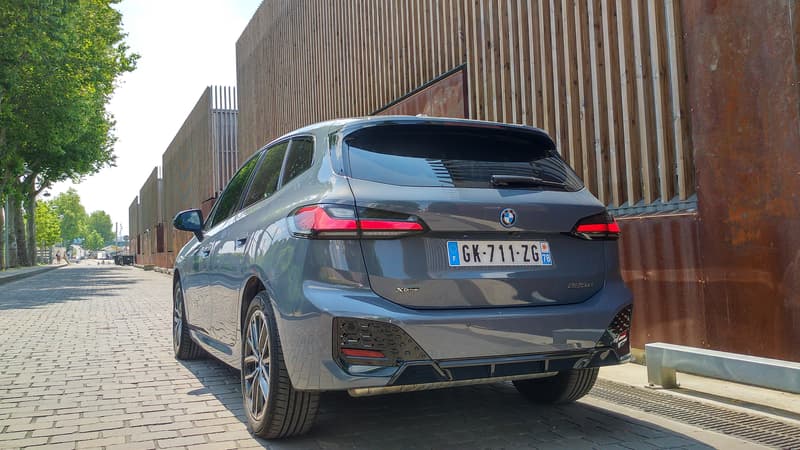The high-end car manufacturer BMW estimated on Wednesday, May 8, that the European Union “will shoot itself in the foot” if measures are taken to stop imports of vehicles from China, where the Bavarian brand occupies an important position.
“What we are experiencing today with the anti-subsidy investigation (for electric cars) against China is exactly the opposite of what we expect” in terms of free trade, said BMW boss Oliver Zipse during a conference call about the results of the company’s first quarter. , which fell sharply.
The European Union announced in early October that it had “sufficient evidence” of illegal Chinese subsidies for electric cars, while officially launching an investigation that angered Beijing. Ultimately, Brussels threatens to increase customs duties on these products to defend the European industry.
20% of cars sold are manufactured in China
A recent study by the NGO Transport & Environment (T&E) estimated that around 20% of all electric cars sold in the EU last year, or 300,000 units, were made in China.
However, more than half of these vehicles came from Western brands, particularly Tesla, Dacia and BMW, which produce them in China and export from this country.
“So you’ll see how quickly you can shoot yourself in the foot,” insisted Oliver Zipse, accentuating the criticism he already made in March.
His comments contrast with those of Luca de Meo, head of French manufacturer Renault, who in March called on European leaders to take more steps to limit imports of Chinese cars.
China, BMW’s largest market
China is a crucial market for German manufacturers, who are much more established there than other European manufacturers. However, its position is threatened by the high-speed electrification of the Chinese automobile fleet, which mainly benefits local brands.
BMW reported on Wednesday a net profit of 2.95 billion euros in the first quarter, down 19% year-on-year due to higher costs. Its key indicator, the operating margin (Ebit), in its automotive division, registered 8.8% at the end of March, a year-on-year drop of more than 3 percentage points. But the Bavarian maintained the objective of an interest rate between 8.0% and 10.0% throughout the year, a level it has registered since 2022 in each quarter except at the beginning of 2023.
In fact, the increase in manufacturing costs was especially felt from the second quarter of 2023 and continued until the first quarter of 2024, explains the manufacturer.
On the sales side, those of the BMW brand increased by 2.5% between January and March, up to 530,933 thousand units, particularly thanks to the greater proportion of 100% electric vehicles, 78,682 in total.
In China, 183,000 units were sold during the period, a 4.1% annual drop in what remains its largest market in the world. Sales of electric cars, which grew by 18%, did not offset the decline observed in traditional vehicles.
Stable sales expected this year
The group, which also owns the Mini and Rolls-Royce brands, recorded a total turnover of 36.6 billion euros during the quarter, 0.6% less year-on-year. This is due to changes in models and unfavorable exchange rate effects linked to the Chinese renminbi and the US dollar.
For this year, BMW confirms that it expects a stable sales volume, driven in particular by the arrival on the market of new models in the higher price segment, such as the 7 Series and 5 Series.
The taxable profit is still expected to be slightly lower than in 2023, focusing on the launch of the upcoming “Neue Klasse” electric cooker, which will hit the market in 2025.
After the “slight failure” in the lower-than-expected operating margin in the automotive sector in the first quarter, noted by RBC in a note published on Wednesday, BMW shares lost almost 3% on Wednesday at 11 a.m. on the Frankfurt Stock Exchange. Exchange.
Source: BFM TV


